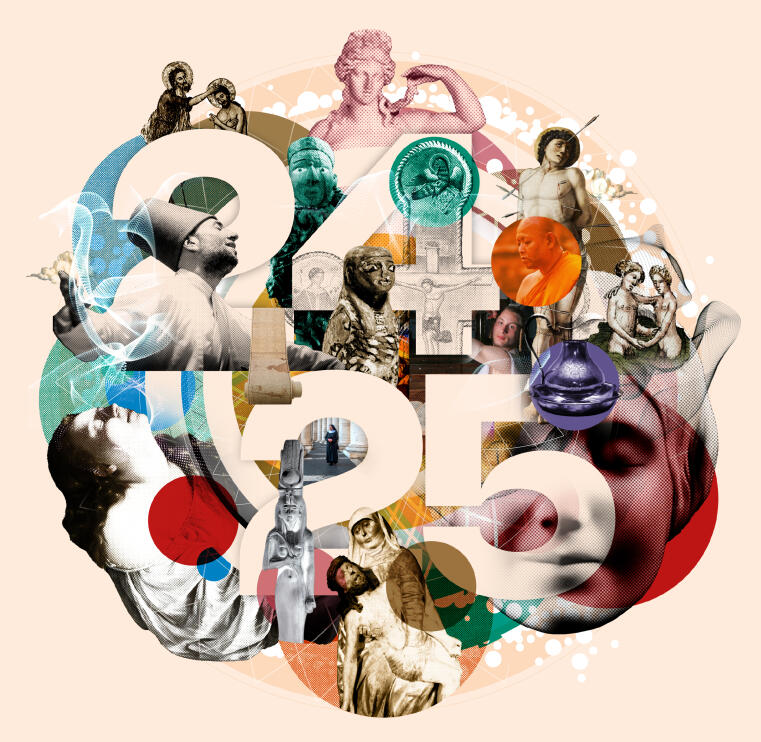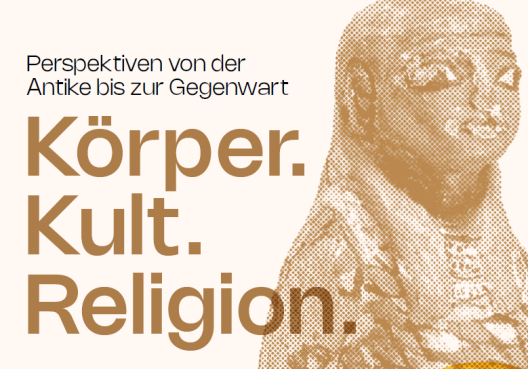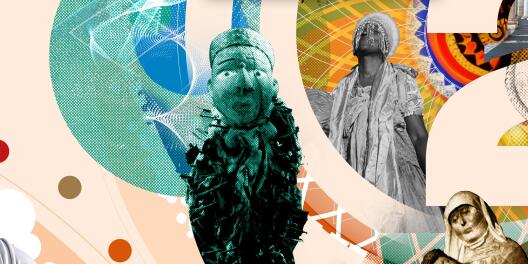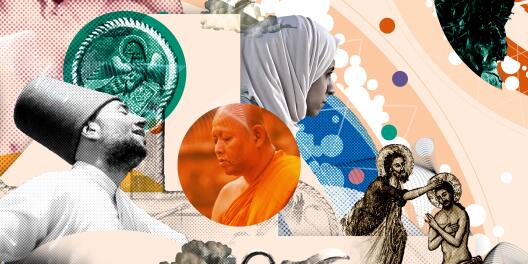Body and Religion
Annual theme 2024/2025 of the Cluster of Excellence “Religion and Politics”

In the world’s religions, the body is both an object and an expression of religious ideas. This is the issue that the Cluster of Excellence is exploring in the 2024/2025 annual theme “Body and Religion”. Whether healing and purification rituals, asceticism and fasting, head coverings and tattoos, or practices on the dead body – religious ideas about people, gods, and the worlds beyond are reflected in how people have treated the human body across epochs and cultures. The lines of tradition stretch from ancient polytheistic religions to today’s interpretations of Judaism, Christianity and Islam. The annual theme presents the Cluster of Excellence’s current research on “Body and Religion” in an exhibition and an extensive programme of events that allow researchers and the general public to come together for discussion.







